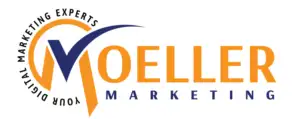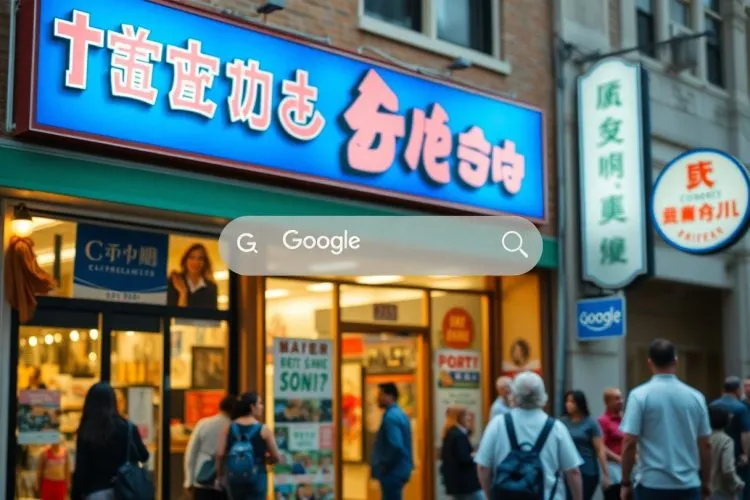
Just as you navigate the digital landscape for your NJ small business, understanding the differences between SEO and Google Ads can significantly impact your online success. Both strategies have their unique strengths, offering varying benefits depending on your goals, budget, and timeline. In this guide, we’ll break down the key aspects of SEO and Google Ads, helping you make an informed decision on which approach aligns best with your business needs.
Key Takeaways:
- Cost Structure: SEO typically requires a long-term investment with ongoing efforts, while Google Ads is pay-per-click, offering immediate visibility but ongoing costs.
- Time to Results: SEO can take several months to show results, whereas Google Ads can generate traffic almost instantly.
- Organic vs. Paid Traffic: SEO results in organic traffic, building credibility over time, while Google Ads provides paid visibility that may not foster long-term trust.
- Competition and Market Trends: Understanding local competition in NJ can help businesses choose between SEO and Google Ads based on current market dynamics.
- Targeting Capabilities: Google Ads offers precise targeting options, allowing small businesses to reach specific demographics quickly, while SEO targets broader search intent over time.

Understanding SEO
The world of Search Engine Optimization, or SEO, is pivotal for small businesses looking to increase their online visibility. SEO involves various strategies and techniques aimed at improving your website’s rankings on search engines, thereby attracting more organic traffic. This could include optimizing your website’s content, structure, and performance, ensuring that your business stands out in an ever-expanding digital marketplace.
Definition and Overview
Along with the right tools and strategies, SEO helps your website rank higher in organic search results, making it more likely for potential customers to discover your business. It focuses on understanding what your target audience is searching for and ensuring that your content meets those needs effectively.
Benefits for Small Businesses
With effective SEO practices, your small business can enjoy enhanced online visibility, leading to increased web traffic and customer engagement. SEO helps build your brand’s credibility by ensuring that users find you among the top search results, which can foster trust and encourage conversions.
A well-implemented SEO strategy can lead to long-term benefits for your small business. Unlike paid advertising, the effects of SEO can last for months or even years after implementation, providing ongoing traffic to your site without recurrent costs. Additionally, SEO is particularly advantageous for small businesses because it allows you to compete with larger companies by targeting specific keywords that resonate with your audience. By consistently delivering quality content and optimizing your site, you’re not just attracting customers; you’re building a reputable online presence that can lead to sustained growth.
Exploring Google Ads
It’s important to understand how Google Ads can be a powerful tool for your small business. By leveraging targeted advertising, you can effectively reach your ideal audience at the moment they are searching for products or services like yours. Google Ads allows you to create compelling ads that appear on Google search results and across the Google Display Network, providing immediate visibility and opportunities for engagement.
Definition and Overview
By definition, Google Ads is an online advertising platform where businesses can create ads to appear on Google’s search results and partner websites. You’ll use a pay-per-click model, meaning you pay only when someone clicks on your ad, allowing for control over your advertising budget while driving traffic to your site.
Benefits for Small Businesses
The benefits of Google Ads for small businesses are substantial. You have access to a vast audience, precise targeting options, and measurable results that allow you to optimize your campaigns effectively.
For instance, Google Ads provides small businesses with the ability to set specific demographics, interests, and locations for your ads, ensuring that you reach the customers most likely to convert. You can also track the performance of your ads in real-time, giving you insights to adjust your campaigns and improve their effectiveness. This level of control and data-driven decision-making can lead to a better return on investment compared to traditional advertising methods.
Key Differences Between SEO and Google Ads
Despite both SEO and Google Ads aiming to enhance your online visibility, they function quite differently. SEO focuses on organically optimizing your website content to rank higher in search engine results, which typically requires an investment of time and expertise. In contrast, Google Ads is a paid advertising platform that allows you to appear in search results almost immediately, offering a quicker path to visibility through targeted marketing campaigns.
Cost Implications
On the cost front, SEO usually entails ongoing expenses for content creation, link building, and potentially hiring experts. These costs can accumulate over time but generally yield long-lasting results. Alternatively, with Google Ads, you pay for each click or impression, and while you can control your budget, the visibility stops once you stop funding it. This makes understanding your return on investment imperative for both strategies.
Time to Results
Results from SEO efforts can take several months to materialize, as search engines require time to recognize and reward your optimizations. Conversely, Google Ads allows you to see traffic and engagement almost immediately after launching your ad campaigns. While SEO builds lasting authority over time, Google Ads may offer a quicker influx of customers, making it easier for you to decide which aligns better with your business goals.
It’s imperative to consider that while quick results from Google Ads can be tempting, you may find that the time invested in SEO leads to sustainable growth and reduced costs in the long run. A well-rounded approach that balances both options might be the best strategy to maximize your online visibility and customer reach.
Long-term vs. Short-term Strategies
Once again, when weighing SEO against Google Ads, consider the balance between long-term stability and immediate results. SEO is a marathon, building up your site’s authority over time, while Google Ads offers swift visibility right after launch. You can dive deeper into What are the differences between Google AdWords and … to understand more about these contrasting methodologies.
Sustainability of SEO
Longterm, SEO allows you to cultivate organic traffic and sustain your online presence, allowing your small business to reap ongoing benefits without the recurring costs of advertisements. As you consistently produce valuable content and optimize your website, your search rankings improve, leading to free, targeted traffic that can convert well over time.
Immediate Impact of Google Ads
Beside the long-term gains of SEO, Google Ads deliver immediate results by placing your business at the top of search engine results. This can drive rapid traffic to your site, helping you capture leads quickly, especially if you’re targeting time-sensitive promotions or events.
The effectiveness of Google Ads lies in its ability to generate instant visibility. Once you launch a campaign, your ads can start appearing within hours, making it an excellent option for immediate outreach or seasonal sales. While this can boost traffic and sales quickly, be aware that this influx decreases after you stop funding ads, revealing its short-term nature in contrast to the more sustainable model of SEO.
Targeting and Audience Reach
Many small businesses in New Jersey grapple with how to effectively reach their target audience. When weighing SEO against Google Ads, it’s crucial to consider how each strategy connects you with potential customers. SEO builds organic visibility while Google Ads offers a direct approach to reaching specific demographics and behaviors, allowing you to make informed decisions based on your unique business needs.
Organic Reach with SEO
About SEO, it focuses on improving your website’s visibility in search results without paid advertising. This strategy allows you to organically attract visitors through valuable content and keywords relevant to your audience. As your website gains authority, you enhance your ability to reach customers actively searching for your products or services, fostering long-term engagement.
Precision Targeting with Google Ads
Behind Google Ads, you find an advanced ecosystem that enables you to target your audience with pinpoint accuracy. You can segment your audience based on various criteria such as demographics, interests, and online behavior, ensuring your ads reach the right people at the right time, maximizing your marketing budget’s impact.
Targeting on Google Ads involves leveraging data-driven insights to refine your campaigns. You can create tailored ad messages that resonate with specific audience segments, thereby increasing conversion rates. With features like location targeting and remarketing, you can effectively engage potential customers who have previously interacted with your business, allowing for a more efficient allocation of advertising resources.

Case Studies of NJ Small Businesses
After analyzing the landscape of NJ small businesses, here are some case studies showcasing the effectiveness of SEO and Google Ads:
- A local bakery increased organic traffic by 150% within six months through targeted SEO strategies.
- A home services company generated 40% more leads after optimizing its website for local search.
- One retail shop saw a 75% boost in online sales within three months of launching a Google Ads campaign.
- A fitness studio achieved a 200% return on investment (ROI) from a well-structured Google Ads strategy.
Successful SEO Implementations
Along your journey to improve visibility, several NJ businesses successfully implemented SEO techniques. For instance, a plumbing business focused on local keywords, resulting in a 120% rise in website visits and doubled phone inquiries within a year. These data points highlight how effective SEO practices can drive tangible growth for your business.
Effective Google Ads Campaigns
About your interest in paid advertising, many NJ small businesses have reaped significant benefits from well-crafted Google Ads. For example, a local restaurant launched targeted campaigns that resulted in a 30% increase in reservations within just one month, showcasing the immediate impact of paid search marketing.
It’s important to understand how these campaigns work. Google Ads allow you to precisely target your audience based on various parameters including location, demographics, and interests. You can track your ROI, adjust bids, and optimize ad content in real-time, making it a highly adaptable strategy. This flexibility can help you respond to market changes and capitalize on trends effectively, ensuring your small business stays competitive.
Conclusion
Summing up, choosing between SEO and Google Ads for your NJ small business depends on your specific goals and budget. SEO offers long-term organic growth, while Google Ads can provide immediate visibility. Assess your current resources and consider a balanced approach to maximize your online presence. For more insights, you can explore Which is better: SEO or Google Ads? to guide you in making an informed decision.
FAQ
Q: What are the primary differences between SEO and Google Ads for small businesses in NJ?
A: SEO, or Search Engine Optimization, focuses on improving a website’s organic rankings in search engine results through various techniques such as keyword optimization, content creation, and backlink building. This process takes time to show results but can lead to sustainable traffic over the long term. On the other hand, Google Ads is a pay-per-click (PPC) advertising platform that allows businesses to display ads on Google’s search results. While it can provide immediate visibility and traffic, it requires ongoing financial investment to maintain ad placements.
Q: Which strategy provides better long-term results for NJ small businesses?
A: SEO typically offers better long-term results because once a website achieves high organic rankings, it can continue to attract traffic without ongoing costs beyond initial optimization efforts. In contrast, Google Ads requires constant funding; if a business stops paying for ads, the traffic ceases immediately. Businesses looking for sustained presence and credibility may find SEO to be more beneficial in the long run.
Q: Can a small business in NJ effectively utilize both SEO and Google Ads?
A: Yes, many NJ small businesses find that a combined approach enhances their online presence. Using Google Ads can provide immediate traffic while the SEO strategies are being implemented. This can be particularly effective during new product launches or promotional events. Over time, businesses can reduce their reliance on ads as their SEO rankings improve, leading to a more balanced and cost-effective marketing strategy.
Q: How do costs compare between SEO and Google Ads for NJ small businesses?
A: The cost structure differs significantly between the two. SEO typically involves upfront costs for website optimization, content development, and potential ongoing maintenance fees. However, it does not incur costs per click or per impression. In contrast, Google Ads necessitates a budget that can vary widely based on the competitiveness of the keywords being targeted, with businesses paying for every click on their ads. Small businesses should assess their budget and goals to determine which approach—or combination of both—suits their financial situation best.
Q: Which option is better for driving immediate traffic to a small business in NJ?
A: For immediate traffic generation, Google Ads is usually the better option. It can place ads at the top of search results almost instantly, allowing businesses to capture attention quickly. This is particularly useful when launching new products or services or when there’s a time-sensitive promotion. SEO, while effective for sustained traffic, can take weeks or months to see results, making it less suitable for urgent marketing needs. Small businesses needing quick visibility might prioritize Google Ads in such contexts.





